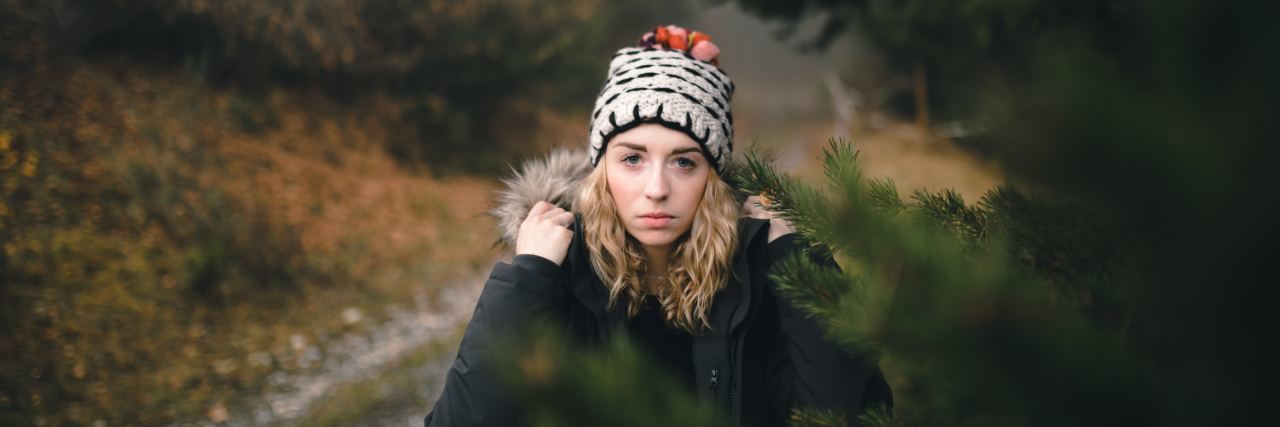How I Find Hope With PTSD Despite Being Constantly Afraid
Editor's Note
If you experience suicidal thoughts, the following post could be potentially triggering. You can contact the Crisis Text Line by texting “START” to 741741.
When I was diagnosed with post-traumatic stress disorder (PTSD), I discovered I’m not afraid of my mortality. Rather, I’m terrified by my ability to endure. I’m afraid of my ability to endure fear beyond what I knew was possible. To endure relentless tidal waves of loss and pain and uncertainty and trauma and grief that leave me unable to catch my breath. That leave me wondering what this world is and whether it’s worth fighting for in its painful incomprehensibility. Where the only certainty some days seems to be terror and struggle. I’m terrified to endure so far beyond what I knew was survivable that when I am granted the grace to catch my breath, I no longer know how to live.
Living with PTSD is feeling afraid of everything, and it wears and exhausts and corrodes. I walk around carrying fear in my body —echoed manifestations of terrifying memories, embodiments of loss and such grief and wisdom I’m still learning how to live with.
I’m afraid of the resilience of the human spirit; our ability to endure the unbearable without a choice.
I’m afraid I’m ultimately powerless to control what truly matters.
I’m afraid I’ll never be able to explain to anyone what’s unfolded in my life.
I’m afraid of the seeming choice between having friends and being my true self.
I’m afraid of being entirely alone.
I’m afraid I’ll never be able to forgive myself.
I’m afraid because everything still seems so hard. Why is life this hard for me?
I’m afraid that I’m unworthy of this life I’ve been given.
But most of all, I’m afraid I don’t know how to live anymore. With all these feelings, all these memories, all this struggle and loss and love and re-becoming.
And so, I’m more exhausted. I trust my body less. I’m unsurprised by the worst. I anticipate trauma. I cry more and sometimes the tears feel constant. My mind creates rules that demand to be followed, exacting exhaustion or anxiety. I cannot be alone and yet it sometimes feels impossible to be around others.
So where have I found hope? In the darkest periods, I hoped and begged so many nights for all this pain to go away because I simply didn’t think I was strong enough. I felt like I was breaking. Sometimes I truly felt like I was dying. I wasn’t granted this wish.
But I think the wonder I’ve seen is my emerging capacity to hold all these emotions — grief, devastation, anger, terror, hope, joy, love — at once and to understand they’re not entirely contradictory.
So while I haven’t found a goodness that’s come into my life and taken away the pain or compensated for it, I have found more than enough goodness to live again, right here, at what once felt like the end of hope. Friends and family who have shown me the depth of their love by standing with me, even on my worst days. The strength I’ve seen in myself. The days I’m brave enough to go on a run or can laugh at a joke or feel the sun.
I share this because when I was first diagnosed, I thought the only hope toward healing was to “become OK” with events that were so irrevocably not OK. It made healing seem impossible, even undesirable. As much as I wanted to get better, I didn’t want it at the cost of pretending the worst events I could fathom were OK. Where I’ve found my healing instead is in grieving what happened while still experiencing goodness. I’m not able to do this every day, but the days I am are becoming more frequent. And that is where I find my hope.
Unsplash image by Grant Ritchie

